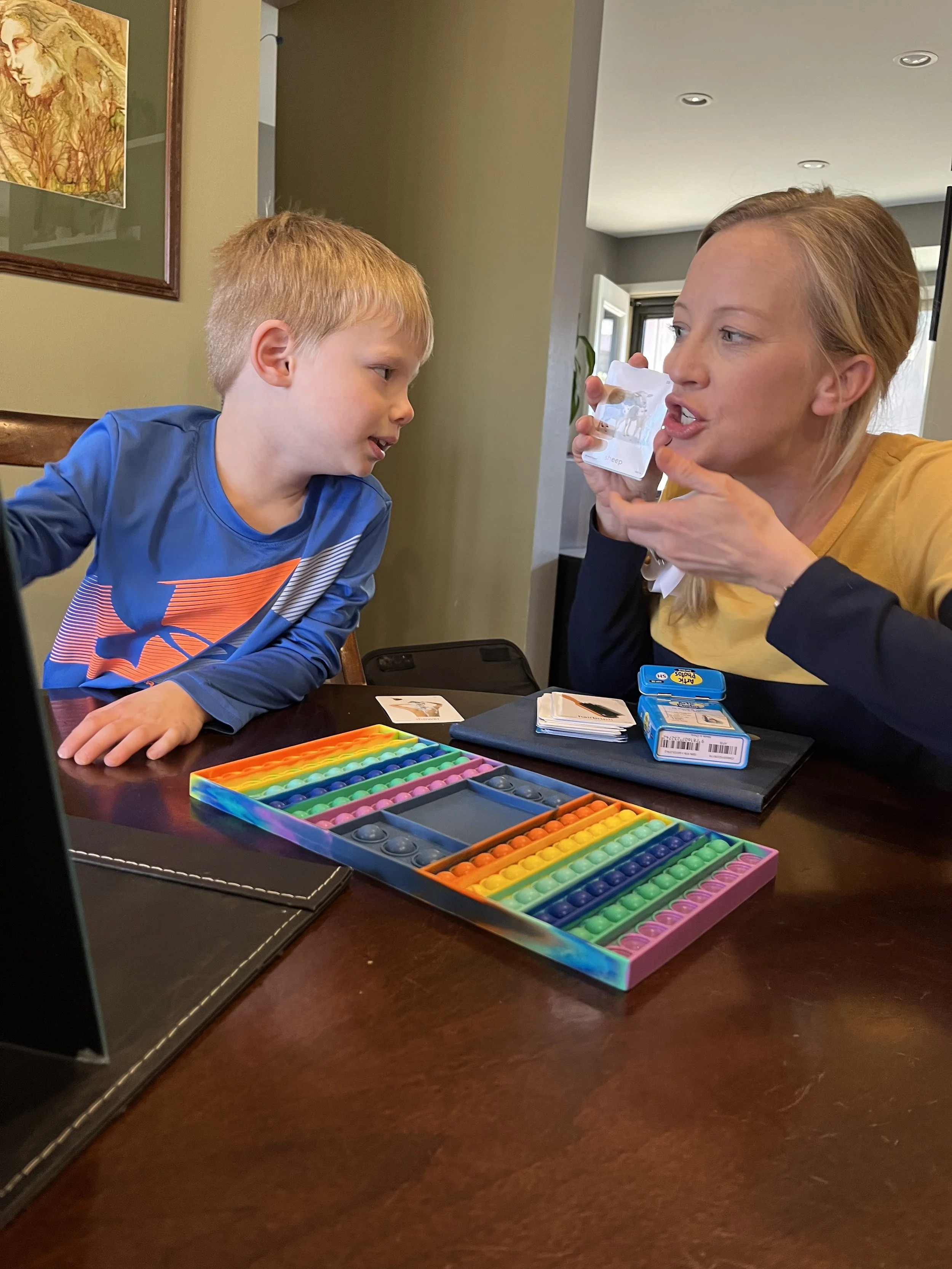Pediatric Language Therapy in Frankfort, Mokena, and Manteno, IL
Language therapy focuses on helping children develop the skills they need to understand and use language effectively. At Fisher-Jost Therapy, our pediatric speech-language pathologists create individualized therapy plans that target a child’s receptive language (understanding words, directions, and concepts) and expressive language (using words, sentences, and grammar to communicate thoughts). Sessions are designed to be interactive and engaging, often using play-based techniques, visuals, and storytelling to help children strengthen their communication skills in a natural, meaningful way.
What Are The Benefits of Language Therapy
Strong language skills are essential for success in school, friendships, and daily life. Children who participate in language therapy often show improved comprehension, stronger vocabulary, clearer sentence structure, and greater ability to express their ideas. These skills lead to better participation in classroom learning, increased social confidence, and reduced frustration in communication. Early language therapy can also positively impact literacy development, as skills like vocabulary and sentence building directly support reading and writing. At Fisher-Jost Therapy, our goal is to give every child the tools they need to succeed academically and socially through effective language support.
Who Can Benefit from Language Therapy?
Language therapy can help children with a wide range of communication challenges. This includes children who struggle to understand directions, follow conversations, answer questions, or tell stories. It also supports those who have limited vocabulary, difficulty forming sentences, or challenges related to grammar. Children with developmental delays, autism spectrum disorder, Down syndrome, hearing loss, or learning disabilities often benefit from targeted language therapy. Even children without a formal diagnosis may need therapy if their language skills are not keeping up with peers. At Fisher-Jost Therapy, we tailor every therapy plan to meet each child’s unique strengths and needs.
Signs Your Child May Need Language Therapy
Children who can benefit from language therapy may have trouble following instructions, answering simple questions, or keeping up with the back-and-forth of conversations. Other common signs may include:
Difficulty following directions or understanding questions
Limited vocabulary compared to peers
Trouble forming sentences or using correct grammar
Short or incomplete responses in conversation
Difficulty retelling stories or describing events
Challenges engaging in typical conversations with friends or family
Frequent misunderstandings or frustration when trying to communicate
Parent Involvement & Home Strategies for Language Therapy
Parents play a vital role in supporting progress outside of the therapy room. The more a child practices language skills in daily routines, the faster those skills generalize into real-life communication. At Fisher-Jost Therapy, we encourage parents to be active partners in the process by weaving language-building opportunities into natural family interactions:
Model expanded sentences: If your child says, “dog run,” you can respond with, “Yes, the dog is running fast.”
Read together daily: Pause to label pictures, ask simple “wh” questions, and encourage your child to retell parts of the story.
Narrate daily routines: Talk through activities like cooking, grocery shopping, or getting dressed to expose your child to rich, functional vocabulary.
Encourage turn-taking: Play simple games or conversations that involve back-and-forth exchanges to strengthen conversational skills.
Use repetition and consistency: Repeat key words and phrases often so your child hears and practices them in different contexts.
Celebrate attempts, not just accuracy: Praise your child’s effort to use new words or longer phrases to build motivation and confidence.

